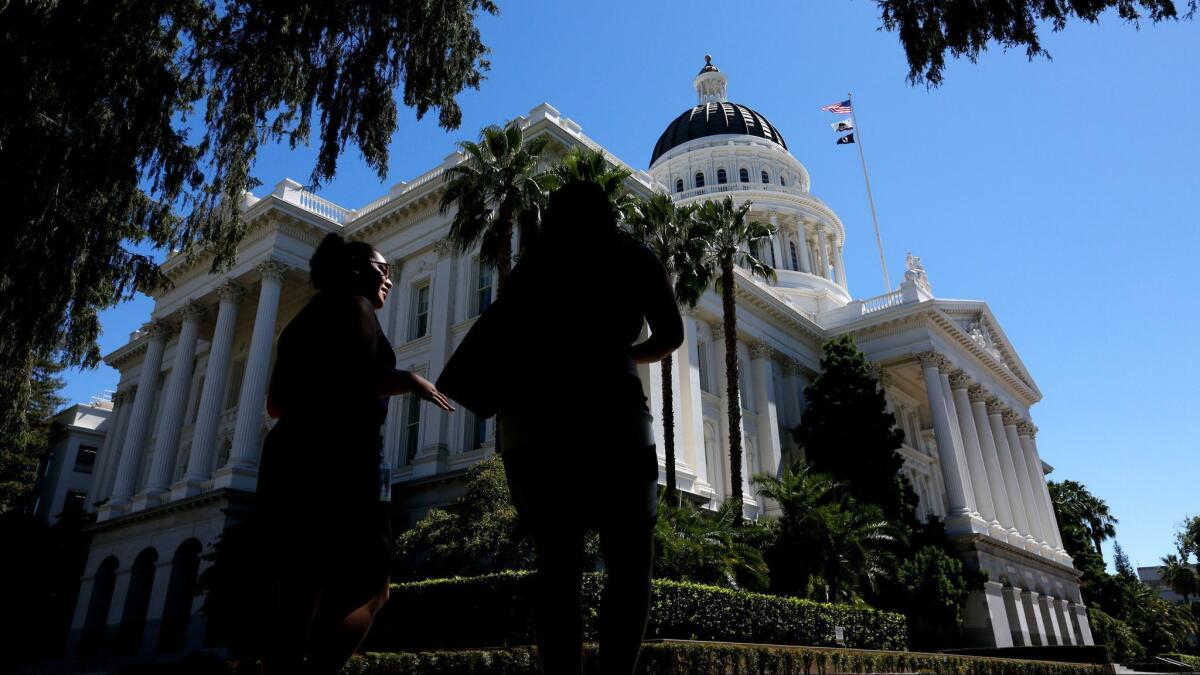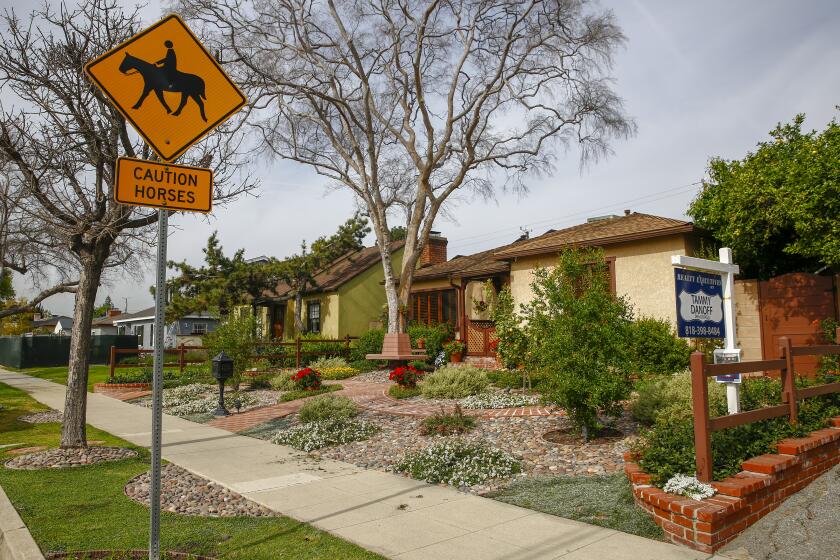Column: California is rolling in surplus cash. But legislators want to raise taxes anyway

- Share via
SACRAMENTO — It’s income tax time across America, but in the California Legislature it is always tax time. Some Democrats never stop trying to raise taxes. It seems addictive.
Never mind that Californians already pay the highest state taxes in the nation.
Moreover, Sacramento is hauling in so much revenue that the state government is accumulating a huge surplus and is close to being legally forced to return some of the money to taxpayers.
Yet, during the young legislative session lawmakers have already proposed raising taxes and fees by an unbelievable $234 billion annually, according to the California Tax Foundation. That’s a research nonprofit founded decades ago by the California Taxpayers Assn., an anti-tax lobby.
Let’s put that $234 billion in perspective. It’s more than the entire $227-billion state budget Gov. Gavin Newsom proposed in January for the next fiscal year. He plans to revise the budget this week, no doubt upward.
A caveat on the tax total: I characterize the figure as unbelievable because it is. It’s an implausible stretch crafted to serve as a two-by-four to awaken taxpayers and prod them to yell at lawmakers.
It’s beyond the realm of conceivability that the vast majority of these tax proposals could be enacted into law.
Nevertheless, the foundation did Californians a service by laying out what could happen if tax-happy lawmakers were left to their own devices. Fortunately, there are pragmatic leaders, moderate Democrats and conservative Republicans to block the two-thirds majority votes mostly required.
And Newsom is leery of any major tax hike, especially when he’s fighting off a recall attempt and is up for reelection next year.
“We’re proposing no tax increases, we’re balancing the budget,” he asserted in January.
Newsom hasn’t said much about it since, but senior advisor Dee Dee Myers, who heads the governor’s Office of Business and Economic Development, recently tried to quash the notion.
“The governor’s made clear he’s not going to raise taxes,” Myers told an economic summit sponsored by the Oakland Metropolitan Chamber of Commerce.
“There will be no increase in income tax, no California wealth tax, not interested in raising corporate taxes or capital gains taxes.”
State officials attributed California’s historic population decline to the falling birth rate, deaths from COVID-19 and reductions in immigration.
That sounds concrete. But David Kline, spokesman for the tax foundation, says his organization has learned to be skeptical.
“It’s our view that everything is a threat until the Legislature is out of session,” he says. “Taxes have a way of popping up during budget negotiations. Bills that seem dead have a way of coming back to life. There’s always the possibility when legislation is being considered that just about anything can happen.
“One significant factor is that just by introducing large numbers of tax increases, some lawmakers are sending a message to business owners and higher-income earners that California may go after them in the future.
“If you see that taxes are constantly being proposed in California, but not in other states that are welcoming you with open arms, that’s going to be a factor in your business consideration. It causes concern.”
That’s indisputable logic.
Newsom’s Department of Finance announced Friday that for the first time in history, California lost population last year — 0.46%. The chief causes were a decline in foreign immigration, COVID-19 deaths and a slowdown in births.
There also were more people leaving for other states than moving to California from elsewhere in the U.S. But this was a minor cause of population loss — not a mass exodus, as Newsom’s critics allege.
We aren’t losing high-income people fleeing state taxes, according to the nonpartisan Public Policy Institute of California. More affluent people have been arriving than departing. We’re mostly losing low- to middle-income people who can’t afford to live here.
We’re not losing high-income people fleeing California taxes, columnist George Skelton writes. More affluent people have been moving here than departing because they can afford our escalating costs of living.
But there’d surely be a rush to the border by high-income Californians and businesses if Sacramento ever began raising taxes as proposed by some lawmakers.
Californians already pay the nation’s highest state income, sales and gasoline taxes. The state’s corporate tax is near the top. We’ve got relatively low local property taxes, but they still rank No. 16 in the country.
By far the biggest proposed tax hike reported by the tax foundation would raise $200 billion annually to finance a single-payer “Guaranteed Healthcare for All” program. But that bill, AB 1400, doesn’t actually have a funding mechanism yet. The foundation based its estimate on previous such proposals. And sponsors don’t plan to push the new bill until 2022, an election year.
So, you can scratch it — for now.
More often discussed is a so-called wealth tax that would raise $22 billion by imposing an annual 1% tax on assets exceeding $50 million. Even if AB 310 passed — which is highly unlikely — Newsom has signaled he’d veto it.
AB 1253 seems like a sarcastic joke. It would generate $6.5 billion by raising the state’s highest-in-the-nation 13.3% top income tax rate to 16.8% — and stimulate the exit of wealthy Californians.
A few of the relatively minor tax hikes make sense. For example, AB 395 would tax unhealthful electronic cigarettes and spend the $22 million on grants for disadvantaged students seeking healthcare careers.
But Democrats should be careful not to scare off too many people — from the state or the party at election time.
Sacramento is rolling in money. It doesn’t need big tax increases. It needs more efficient spending.
Republicans have been screaming that for years. They’re not always wrong.
More to Read
Sign up for Essential California
The most important California stories and recommendations in your inbox every morning.
You may occasionally receive promotional content from the Los Angeles Times.













